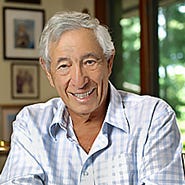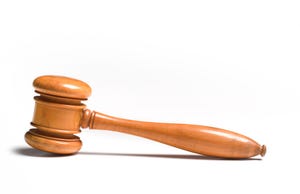4 Life Lessons from a Medtech Pioneer
June 14, 2017
Robert E. Fischell, PhD, winner of the 2017 MDEA Lifetime Achievement Award, shared some of the wisdom he has gained from more than 50 years in the medical device business during MD&M East this week.
Amanda Pedersen

After more than 50 years in the medical device business, and securing more than 200 patents, Robert E. Fischell, PhD, has gained a wealth of knowledge about innovation. On Tuesday, during a presentation at the MD&M East conference and expo in New York, Fischell shared a few nuggets of that wisdom with attendees. Also on Tuesday, Fischell was presented with the 2017 MDEA Lifetime Achievement Award during a special ceremony.
1) Problems Can Give You an Excellent Opportunity for Innovation
"In other words, if there are heart attacks, let's find a way to eliminate the problem - deaths - from heart attacks," Fischell said.
|
Robert Fischell, PhD, received the 2017 MDEA Lifetime Achievement Award during a special ceremony Tuesday at MD&M East. |
He used the example of a device developed by one of the many companies he has founded, Angel Medical Systems.
The AngelMed Guardian is an implantable cardiac device, similar in appearance to a pacemaker, that is designed to detect rapid ST segment changes, known as ST shifts, that may signify major cardiac events, such as a heart attack, caused by vulnerable plaque ruptures. Once an ST shift is detected, the system is designed to alert patients to seek medical care by delivering a series of vibratory, auditory, and visual warnings.
"The average time from a heart attack to the emergency room is three hours. The average time from the emergency room to treatment is also three hours," Fischell said.
The AngelMed Guardian is intended to address the challenge of patients not recognizing nor responding quickly to heart attacks. The device is commercially available in Brazil and is in a phase II U.S. clinical study.
"No prior device ... could warn a patient that a heart attack is occurring, just as it starts," Fischell said. "This provides a solution for detection within 90 seconds of a heart attack so that you'll arrive at the hospital in less than 60 minutes and your life will be saved."
2) When the World Gives You Lemons, Make Lemonade
"If there are a lot of people with heart attacks, let's make a medical device that can fix it, make some lemonade," Fischell said, again referring to the AngelMed Guardian device.
Fischell's career is brim-full of other examples of lemons that he has made lemonade out of, figuratively speaking. That lemonade has come in the form of 15 private companies he has founded or co-founded that licensed his patents on devices like the first rechargeable heart pacemaker, defibrillators, coronary stents, and much more. He has won several medals for distinguished accomplishments in science, engineering, and innovation. Last year, he received the National Medal for Technology and Innovation from President Barack Obama for his contributions toward the betterment of mankind.
3) Be Alert to See a Problem
"Be alert to see a problem. That is your best opportunity to advance the field of biomedical devices for the benefit of mankind," Fischell said.
A prime example of Fischell's knack for seeing problems and solutions is a story he recently told Qmed about his contribution to the coronary stent business. After attending a lecture with his son, Tim, an interventional cardiologist, some 25 years ago, he saw a problem with what was, to him, a rather simple solution.
"I heard this lecture about something called a stent. And they said they haven't worked out all the problems, they're still getting a 50% failure rate, but they think it's [got] a great future," Fischell said. "So we looked into it, and we found that the stents were so stiff that they couldn't go around any kind of bend in the coronary arteries, and coronary arteries have a lot of bends."
So Fischell went straight to work on inventing a way to make all heart stents flexible, so they could be more easily navigated through the arteries. With that seemingly simple adjustment, the failure rate of the technology dropped from 50% to 8%.
"It was just as simple as saying, 'oh, it's not good to have stents that are stiff, make them flexible'," he said. "So that is what we did, and it has worked out extremely well for me, and for the heart patients."
Not only did Fischell invent a way to make stents flexible, he also developed an improved delivery system for implanting the stents into the heart, which brought the failure rate of the technology down to just 3%. "So, we've come a long way in just 25 years," he said.
4) Yesterday is history, Tomorrow is a Mystery, But Today is a Gift, which is Why We Call it 'the Present'
"The ultimate in biomedical device ethics is to use your knowledge and energy to make the world a better place for all of us to live," Fischell said. "That is the present that we all should give as a gift to the world."
At 88, Fischell appears to be nowhere near ready to stop giving his gift of knowledge to the world. During his talk at MD&M East, he touted one of his more recent inventions, a transcranial magnetic stimulation device designed to stop migraine headaches.
Amanda Pedersen is Qmed's news editor. Contact her at [email protected].
About the Author(s)
You May Also Like

.png?width=300&auto=webp&quality=80&disable=upscale)

